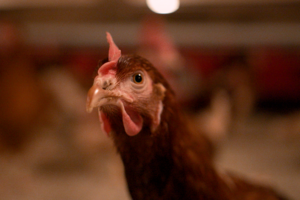Vaccination of poultry against avian influenza poses a risk of mutation and human infection.

European farmers ready to vaccinate against avian flu on livestock on their poultry farms. But preventing the virus from escaping by vaccinating millions of birds is a big problem. Eric Stockstad, author of Science, raised the issue.
In the article, he cited eerie examples of chickens being strangled with tens of thousands of carbon dioxide by special teams, and failing to advise farmers to turn off fans in poultry houses to kill chickens. from overheating.
In an effort to eradicate the highly pathogenic strain of bird flu H5N1, France has killed a record number of poultry since December 2021 – more than 16 million. The value of the killed animals exceeded 150 million euros. Discussions on a long-held taboo on bird vaccination have revived.
While officials in France and other EU countries are discussing the idea, Dutch scientists have already begun testing chicken vaccines. The other day in the south-west of France, researchers from the Netherlands began immunizing ducks with a newly developed vaccine.
And in October, stakeholders will gather at a conference under the auspices of the World Organization for Animal Health to discuss how to reduce international barriers to the export of live vaccinated birds.
because they are not sure that countries with vaccinated birds really control the virus. Influenza experts fear that vaccination may not completely stop the outbreak and may create a risk of infecting people.
For all these reasons, vaccination is a last resort, says pathologist Jean-Luc Guerin of the Toulouse National Veterinary School. “We only use this tool if we recognize that we cannot control the infection in the classical way.” States do not authorize the use of bird flu vaccines at all. But in Europe, the damage caused by the virus could change the calculations. In places where a highly contagious new strain of bird flu has spread, vaccination can indeed be a lifeline.
The current H5N1 strain of bird flu has arrived in Europe from Asia in 2021. It was first discovered in the United States in January and continues to spread. Some researchers are concerned that vaccination, if not done very carefully, will allow H5N1 to persist and continue to mix with strains in wild birds. This carries the risk that the virus may mutate and spread to humans.




